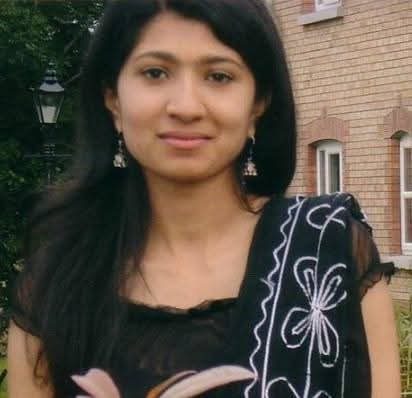Currently undertaking: PhD Education
Thesis Title/ Topic area: Invisible and unheard?: young people in residential care & education
Supervisor(s): Dr Catriona O’Toole, Professor Aislinn O’Donnell
Short Biography: Using a participatory methodology, this research aims to explore what it is like being a young person in Ireland living in residential care while going to secondary school in collaboration with young people as co-researchers. In light of the new Department of Children, Equality, Disability and Youth’s National Framework for Youth Participation and the Ryan Report’s call for more involvement of young people in the development of their care, this research functions under the notion that young people are experts not only in their lives but in the institutions within which they live and grow. Theoretically framed by anarchist principles of skill-sharing, consensus-making and horizontality, we will use arts-based methods developed from Irish and international socially-engaged artists to develop a co-constructed data set. These findings will be displayed in a semi-public event for professionals, educators and policy makers with the goal of developing dialogue and information sharing concerning the unique educational needs of this population between young people and the adults tasked with their care. It will also ask these adults to reflect on how the perspectives of young people can impact future policy and practice within residential care and child protection more broadly.
Currently undertaking: PhD Education
Thesis Title/ Topic area: A counter-narrative study on racialized microaggressions in post-primary contexts from the perspectives of individuals from different ethnic and racial minority groups.
Supervisor(s): Dr Bernie Grummell,
Professor Sharon Todd
Short Biography: My area of interest is Race and Ethnicity in Education. My research proposes an exploration of Black, Asian, and Minority Ethnic students' experience of racial microaggressions in school during their years in post-primary education in Ireland and the resultant impact thereof. My study employs a counter storytelling technique to provide a platform for the often-silenced voices and stories of marginalized communities.
Currently undertaking: PhD Education
Thesis Title/ Topic area: Sustainability Education, Teacher Education
Supervisor(s): Dr. Joe Oyler, Angela Rickard
Short Biography: My research will attempt to offer space for student-teachers, who will be tasked with teaching sustainability content, to build an understanding around social sustainability and the wider sustainability conversation. Some ideas I will be exploring are around how space for criticality and reflection might impact pedagogical thinking for social sustainability, and if it has an impact on overall understanding of sustainability. De-centring humans and reconciling our relationship with non-humans within our communities. How student-teachers are understanding social sustainability and its place in their classrooms.
Currently undertaking: PhD Education
Thesis Title/ Topic area: Exploring the Use of Translanguaging in a Primary English Class in Beijing: A Linguistic Ethnography Study/ Translanguaging, second language acquisition,Bilingualism and Multilingual Education
Supervisor(s): Dr. Céline Healy, Dr. Maija Salokangas
Short Biography: My name is Sichen Huangfu. My bachelor’s and master’s studies in the English language have laid a good foundation for me in the field of language acquisition theory and practice. After my master’s graduation, I chose to become an English teacher in The Elementary School Affiliated to the Renmin University of China due to my passion for languages and education. I have encountered and taught students with different family backgrounds and academic levels. I have found that many local students in Beijing have been exposed to English at an early age and often attain high levels of English proficiency. Meanwhile, students from other places in China often study English at a later age and are not as confident at expressing themselves. Hence, I started to explore effective ways to help students from diverse backgrounds and with different levels of English proficiency in my future research.
In addition to my working experience, I have developed my research skills through participating in several research projects. These projects focused on helping students with English pronunciation, the application of technology in subject teaching, as well as the development of students' core literacy skills using the whole-book approach. Based on my research in this area, I have published two journal articles and presented my findings at a conference entitled “The 3rd International Conference on Literature, Art and Human Development”.
Two recent publications:
Huangfu, S. (2021). Using Drama as a Teaching Method to Improve the Core Quality of Primary School Students. Educational Sciences, 3(6), 202-203.
Huangfu, S. (2021). Exploration of Phonetic Teaching Mode for Lower Grades of Primary Schools Based on Letter-Land. English on Campus (29),137-138.
Huangfu, S., Ouyang, Y., & Meng, X. (2021). An Investigation of the Cultural Awareness Cultivation in Primary School English Teaching: A Case Study. In The 3rd International Conference on Literature, Art and Human Development (ICLAHD 2021) (pp. 219-227). Atlantis Press.
Currently undertaking: PhD Education
Thesis Title/ Topic area: Teacher Agency in Curriculum Making: A Critical Analysis
Supervisor(s): Dr Maija Salokangas, Dr Elizabeth O’Brien
Short Biography: In my study, I examine the ongoing curriculum reforms in Georgia, focusing on the impact of these reforms on teacher agency and system-wide curriculum making practices. Globally, educational reforms have been converging towards 21st-century skills, student-centered learning, and innovative pedagogical approaches. This study specifically explores how these reforms in Georgia have influenced teacher's roles in curriculum-making.
Central to this research is an exploration of how the newly implemented Georgian National Curriculum framework impacts the ways in which teachers exercise their agency within the enacted curriculum. Subsidiary questions delve into the processes of curriculum-making across different institutional sites, the articulation of teacher agency in the curriculum, and teachers' perceptions and exercise of their agency in the classroom.
The conceptual framework for the study is based on Priestley and Philippou's understanding of curriculum-making as a complex, context-specific process with non-linear power dynamics. This study will use an ecological model of teacher agency, examining how agency is affected by cultural, structural, and material factors.
Expected outcomes include a foundational understanding of curriculum-making as an interlocking series of social practices, the impact of the reforms on teacher agency, and recommendations for future curriculum development.
Currently undertaking: PhD Education
Thesis Title/ Topic area: Enhancing Diversity in the Irish Education System: Promoting Inclusion of Asian and Other Minority Teachers.
Supervisor(s): Dr Thomas Delahunty &
Dr Joe Oyler
Short Biography: With a rich and diverse background spanning education and industry, I am a registered post-primary and further education teacher specializing in Business and Mathematics. Before transitioning into education, I spent over 20 years in hotel revenue management, gaining extensive expertise in strategic operations and leadership. My teaching journey has taken me across Asia and Europe, where I have spent over five years shaping future professionals through innovative and inclusive teaching practices.
Academically, I hold an Honours and a master's degree in hospitality management, a Professional Master of Education, and Supervisory Management in Healthcare. Currently, I am pursuing a PhD at Maynooth University, focusing on "Enhancing Diversity in the Irish Education System: Promoting Inclusion of Asian and Other Minority Teachers." My research aims to foster greater representation and inclusivity within the education sector, reflecting my deep commitment to diversity and equitable opportunities.
Currently undertaking: PhD Education
Thesis Title/ Topic area: An exploratory multiple case study examining positive leadership in Irish second level schools
Supervisor(s): Dr. Rose Dolan & Dr. Jolanta Burke
Short Biography: This multiple case exploratory study aims to explore whether a positive leadership approach is a contributing factor to excellent leadership in Irish second level schools. Theoretically, positive leadership represents an umbrella approach to leadership rooted in strategies from positive psychology and positive organisational scholarship. In 2018, a new circular was issued by the DES outlining a significant change in post primary school leadership policy and a shift to a distributed leadership framework in schools. This change in practice has come at a time when school leaders have had to navigate reforms in terms of the reporting of the overall performance of schools and new approaches to curriculum and assessment where the use of technology has become a more prominent feature of planning. Additionally, a global pandemic as well as separate social, economic and political issues has had implications for the roles of school leaders. Traditionally, studies on organisational performance reflect a problem-centered approach where improvement focusses on overcoming issues. This study aims to understand whether a positive approach to leadership has contributed to school leadership teams excelling in their roles despite the considerable challenges that they have faced.
Currently undertaking: PhD Education
Thesis Title/ Topic area: An exploration and conceptualisation of pedagogy in Early Childhood Education and Care (ECEC) by Early Childhood Educators (ECE) in Ireland
Supervisor(s): Dr. Anthony Malone &
Dr. Leah O’Toole
Short Biography: I worked in the Early Childhood Education and Care Sector in Ireland for more than 35 years. I retired from practice in 2020. In 2020, I took up the post of Programme Coordinator and lecturer in TU Dublin on the BA (Hons) Early Childhood Education and Care Programme. During my years in practice, I developed a particular interest in pedagogy. Consequently, I explored pedagogical leadership for my Masters dissertation. My Masters research informed my current research. I am now exploring grá (love), bród (pride) in and responsibility for pedagogy in the ECEC Sector within the Irish context.




